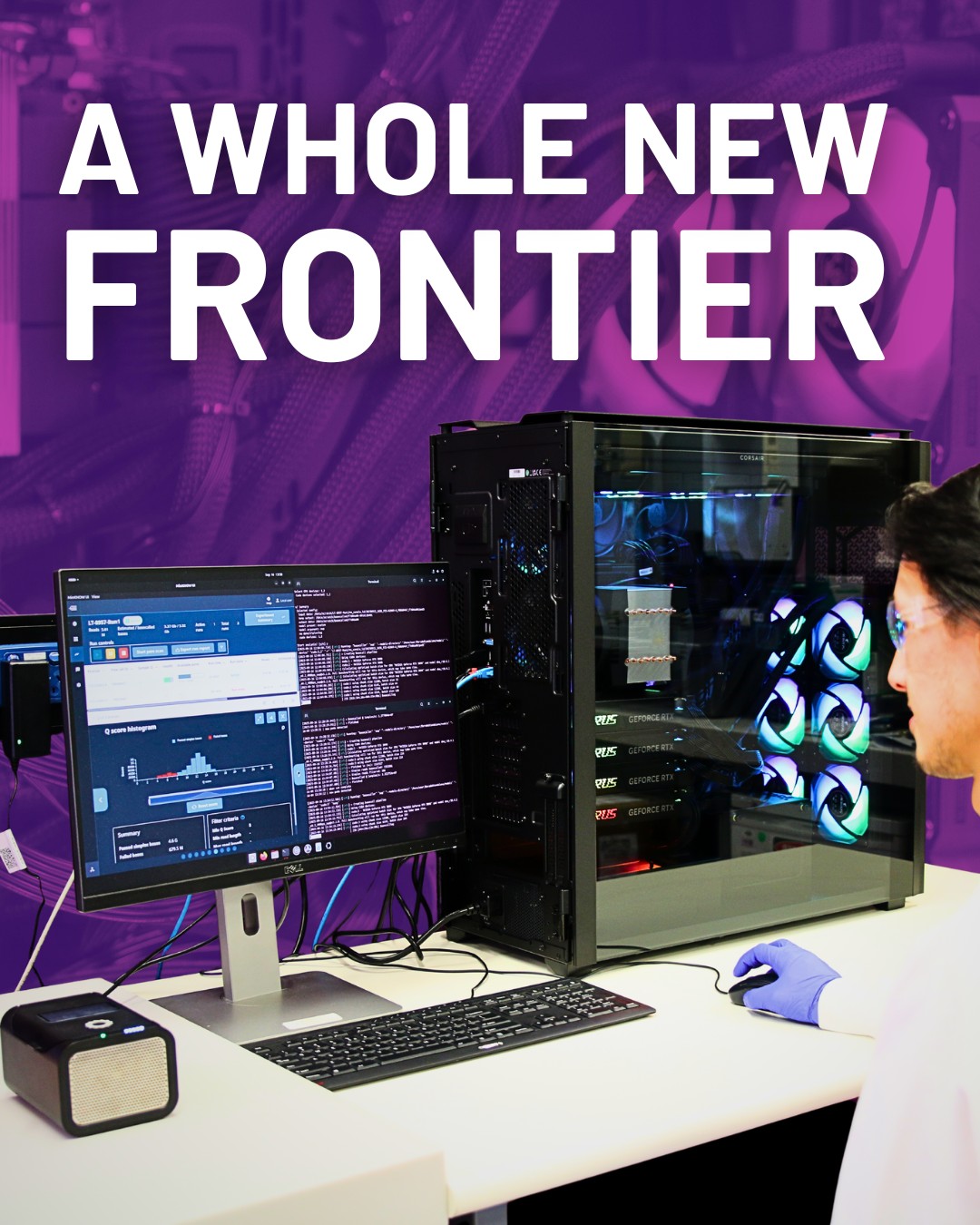A Whole New Frontier: Long-Read Sequencing Arrives at Peter Mac HR
2 min read 07 October 2025
We’re proud to share a development that is transforming cancer discovery at Peter Mac: the arrival of long-read DNA sequencing technology in the Molecular Genomics Core, made possible by the generosity of our supporters.

For more than two decades, researchers have been searching for answers in families where generations have faced breast, ovarian and prostate cancers. Until now, existing sequencing methods could only identify the gene fault in approximately half of these families. This left thousands of people without clear answers about their inherited cancer risk.
Fortunately, the new Oxford Nanopore Long Read Sequencing PC is here to change this. Unlike traditional short-read sequencing that offers a blurred snapshot of DNA, long-read sequencing provides a panoramic view, revealing connections and details that were previously hidden. Instead of reading isolated letters, researchers can now see full sentences and paragraphs, allowing them to uncover mutations that were previously invisible and genes that had never been examined before. Associate Professor Heather Thorne, a leading researcher at Peter Mac, says:
“We could never look in that part of the gene before… already we’ve found genes never detected before. A whole new frontier is opening up.”
For families facing generations of cancer diagnoses, sometimes with up to 22 cases in a single-family tree, this breakthrough is life changing. Identifying the genetic mutation gives the next generation clarity about whether they carry the mutation or not. This in turn means access to treatments tailored to the mutation and avoiding unnecessary and invasive preventive surgery for those who are not at risk.
“It’s important to find the mutation because as we know these days, your gene mutation can dictate what sort of novel treatment you can receive. But just as importantly, for the next generation… without a genetic marker, they don’t know if they’re at risk or not,” says A/Prof Thorne.
Until now, Peter Mac researchers had to send DNA samples overseas for processing. Thanks to the generosity of our supporters, Peter Mac’s Molecular Genomics Core now has the hardware and computing power to generate and analyse the data right here in Australia. Results that once took three weeks can now be delivered in a matter of hours.
A/Prof Thorne and her team are already making discoveries since the installation of the new technology. Early findings are uncovering known cancer genes as well as entirely new ones linked to breast, ovarian and prostate cancers.
“We are in our revolution of genomics. It’s just amazing… I think it’s true to say we’ve all lost sleep over this exciting technology. Genes have already been identified that we have never considered in the cancer spectrum.”
The generosity of our supporters is helping to pave the way for these lifesaving discoveries in cancer research and care. Thank you to all supporters for providing hope for future generations.

